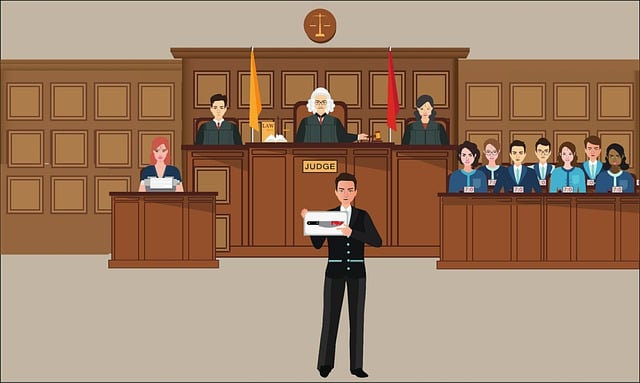In the high-stakes world of real estate disputes, expert investigation is key to exposing hidden fraud. By combining financial analysis, document examination, and witness interviews, professionals uncover intricate transactions' fraudulent activities. This process, vital for civil and criminal trials, ensures justice, compensation, and acts as a deterrent. Early detection through vigilant monitoring of red flags like property record discrepancies or unusual financial activity is crucial. Proactive strategies including document audits and expert involvement prevent further fraud and strengthen settlement negotiations or jury trial cases. The investigation involves reviewing legal documents, financial records, and interviewing parties, leveraging specialized knowledge to identify irregularities. The ultimate goal is justice and market security by studying previous cases and ensuring comprehensive case pictures through data analytics and cross-referencing public records. Engaging legal counsel early can protect property owners from severe consequences of finance crime probes. Resolution options include mediation for swift private negotiation and arbitration for structured decision-making in complex financial disagreements.
In the intricate world of real estate, financial crime probes are becoming increasingly prevalent, exposing schemes that can leave property owners vulnerable. This comprehensive guide delves into the intricacies of understanding and navigating these probes, with a focus on uncovering common frauds in the sector. From early detection signs to the investigation process and legal implications, we explore practical strategies for both authorities and property owners. Learn how to resolve real estate disputes effectively through mediation, arbitration, and litigation, ensuring fair outcomes in challenging times.
- Understanding Finance Crime Probes: Uncovering Schemes in Real Estate
- Early Detection: Signs of Potential Disputes and Fraud
- The Investigation Process: How Authorities Uncover Real Estate Frauds
- Legal Implications and Defense Strategies for Property Owners
- Resolving Disputes: Mediation, Arbitration, and Litigation Options
Understanding Finance Crime Probes: Uncovering Schemes in Real Estate

In the realm of finance crime probes, real estate has emerged as a hotbed for illicit schemes, from mortgage fraud to property flipping scams. These intricate cases require meticulous investigation and understanding of legal nuances, especially when it comes to resolving disputes. How to Resolve Real Estate Disputes is a question that often arises in these high-stakes cases, where the stakes are high and the consequences significant.
Expert investigators play a pivotal role in uncovering these schemes by employing sophisticated strategies such as financial analysis, document examination, and witness interviews. By delving into complex transactions, they can expose fraudulent activities and provide vital evidence for both civil and criminal jury trials. For his clients, this process is transformative, ensuring justice and compensation for wronged parties, while also deterring potential future crimes.
Early Detection: Signs of Potential Disputes and Fraud

In the realm of finance crime probes, early detection is a crucial component for resolving real estate disputes efficiently. Signs of potential disputes and fraud can manifest in various ways. Property transactions often involve complex legal frameworks, making it essential to stay vigilant. Anomalies like discrepancies in property records, unusual financial activities, or conflicting claims from stakeholders could indicate underlying issues.
By identifying these red flags, professionals can initiate proactive measures. This may include thorough document audits, cross-referencing data against regulatory databases, and involving experts for additional insights. Such proactivity not only helps in preventing further fraud but also sets the stage for achieving extraordinary results when presenting cases, whether through settlement negotiations or jury trials, for his clients.
The Investigation Process: How Authorities Uncover Real Estate Frauds

The investigation into real estate frauds involves a meticulous process that authorities employ to uncover and expose illegal activities. It begins with receiving complaints from individuals or entities who suspect fraudulent practices, such as property overvaluation, false documentation, or concealed ownership. The initial step is to gather evidence, which includes reviewing legal documents, financial records, and interviewing relevant parties. This phase requires specialized knowledge and expertise in real estate transactions to identify discrepancies and potential red flags.
By cross-referencing data from multiple sources—including public records, financial institutions, and land registries—authorities can build a comprehensive picture of the case. They may also employ advanced technology and data analytics to detect patterns or anomalies that suggest fraudulent behavior. The goal is not only to achieve extraordinary results in terms of justice but also to prevent similar incidents across the country by studying the methods used in previous cases, thereby helping to resolve real estate disputes effectively and ensuring a more secure market for all participants.
Legal Implications and Defense Strategies for Property Owners

When facing finance crime probes, property owners must be aware of potential legal implications to effectively navigate the situation. The consequences can be severe, including substantial fines, imprisonment, and damage to one’s reputation. Legal experts emphasize that early engagement with counsel is crucial for developing a robust defense strategy. A comprehensive understanding of the allegations, review of financial records, and identification of any mitigating factors are essential steps in how to resolve real estate disputes.
Defending against such charges requires a multi-faceted approach. Strategists recommend demonstrating due diligence and compliance with relevant laws and regulations. Property owners should also focus on refuting specific claims with concrete evidence, particularly concerning the respective business practices that led to the probe. Additionally, showcasing philanthropy and engagement within political communities can mitigate the impact of these investigations, as it highlights personal integrity and responsible conduct. A well-crafted defense strategy, combined with transparent practices, may lead to a complete dismissal of all charges, ensuring the protection of both individual rights and the integrity of the respective businesses.
Resolving Disputes: Mediation, Arbitration, and Litigation Options

When it comes to resolving disputes in real estate transactions, there are several avenues individuals can take. Mediation, arbitration, and litigation are all viable options, each with its own advantages and considerations. These processes play a crucial role in addressing conflicts related to white-collar and economic crimes, where intricate financial matters require careful navigation.
Mediation acts as a collaborative approach, fostering open dialogue between disputing parties. An impartial mediator facilitates negotiations, helping them find mutually agreeable solutions. This method is particularly beneficial for those seeking an expeditious resolution without the formality of a court case. Conversely, arbitration provides a structured platform where parties present their arguments before an arbitrator who makes a binding decision. It offers a more private and efficient alternative to litigation, making it appealing in various real estate scenarios involving general criminal defense or complex financial disagreements within philanthropic and political communities.
Finance crime probes in real estate are complex but necessary to protect investors. By understanding the signs of potential disputes and fraud, property owners can take proactive measures. The investigation process, while thorough, provides a roadmap for exposing deceit. Legal implications offer defense strategies, and knowing mediation, arbitration, and litigation options equips owners with tools to resolve real estate disputes effectively, ensuring fairness and justice in the face of financial crimes.






